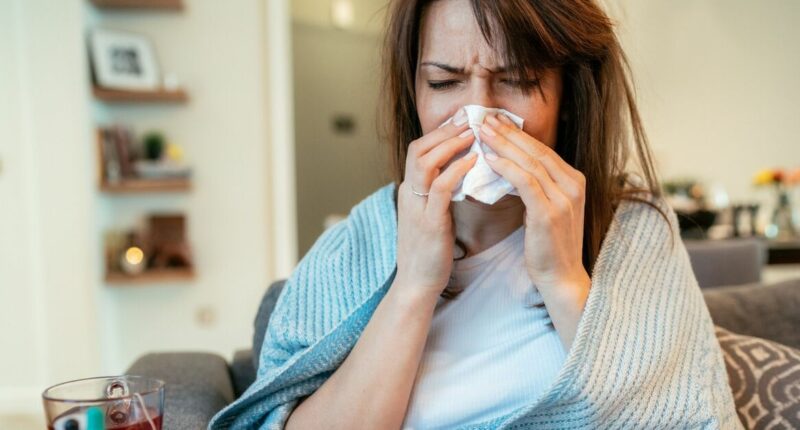Share this @internewscast.com
As the seasons stretch longer, common sniffles and symptoms often mistaken for winter viruses like COVID-19 or the flu might actually be due to another culprit, according to a leading pharmacist. George Sandhu, deputy superintendent at Well Pharmacy, highlights that pollen allergies are now extending into the autumn months.
Sandhu elaborates, “With warmer temperatures, we’re seeing extended growing seasons, resulting in more intense pollen counts than we’ve experienced in past decades. The rise in carbon dioxide levels is not only contributing to global warming but is also acting as a fertilizer for plants, significantly increasing pollen production.”
He also points out that milder winters are leading some plants to release pollen earlier in the spring and continue longer into the autumn months.
Sandhu notes, “As late summer progresses, there is a noticeable shift from higher levels of weed pollen to an increase in indoor allergens such as mould, leaf mould, and dust mites, which all peak during autumn.”
“When you combine the peaks of mould and dust mites with the damp conditions typical of autumn, allergy sufferers are now facing a much more extended period of high risk each year,” he explains.
The pharmacist also detailed the three primary types of allergens that people should be aware of:
- Weed pollen, including ragweed, mugwort, plantain, nettle, dock, goosefoot and sorrel.
- Mould spores which thrive in damp, milk autumn conditions and can be found in rotting leaves, compost heaps and soil, as well as bathrooms, kitchens and other damp areas.
- House dust mites found in bedding, carpets, soft toys and fabrics.
Mr Sandhu said: “Antihistamines will relieve sneezing, runny nose, and itching (e.g., cetirizine, loratadine).
“You can also try nasal corticosteroid sprays that reduce inflammation and congestion like fluticasone and mometasone.
“Decongestants can provide short-term relief for a blocked nose, but note they are not for long-term use.
“Alternatively saline sprays or rinses help to clear allergens from nasal passages, and eye drops will soothe itchy, watery eyes.”











